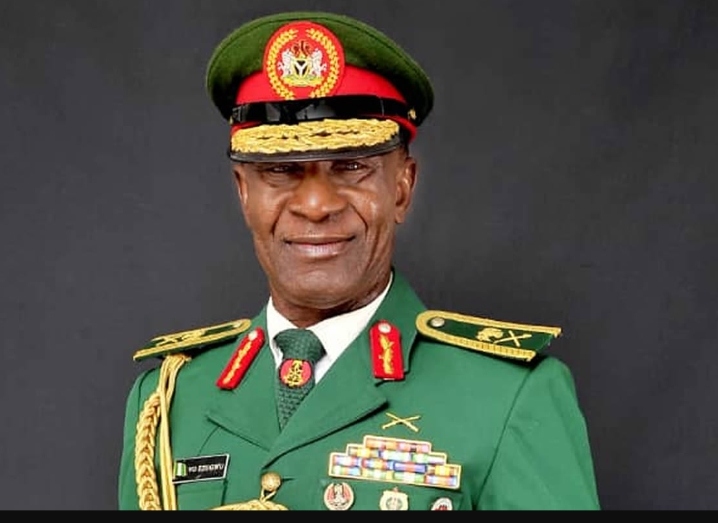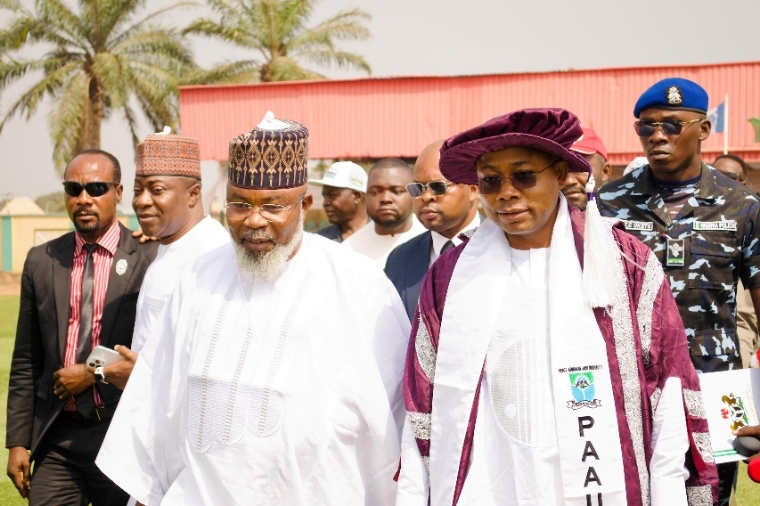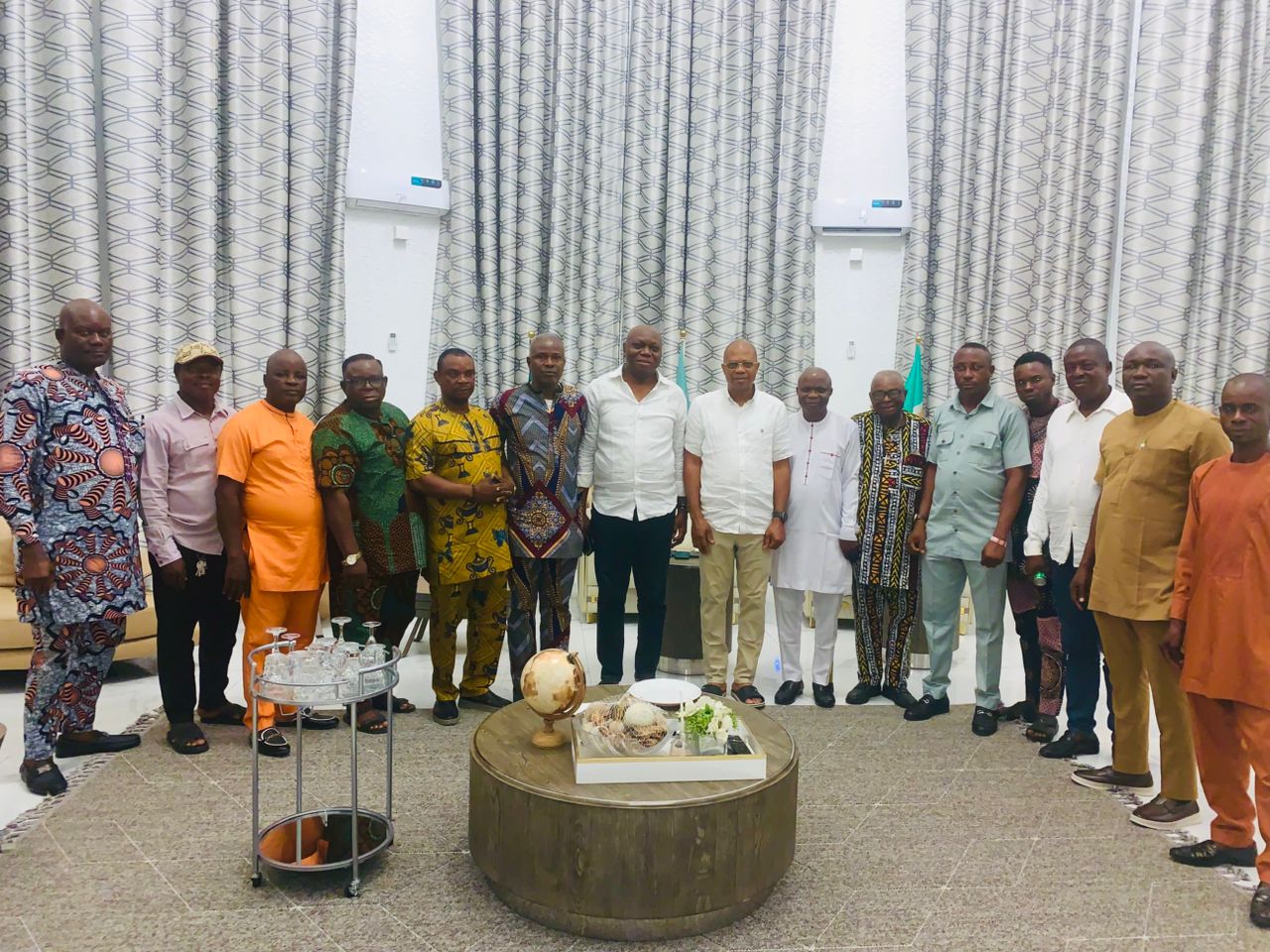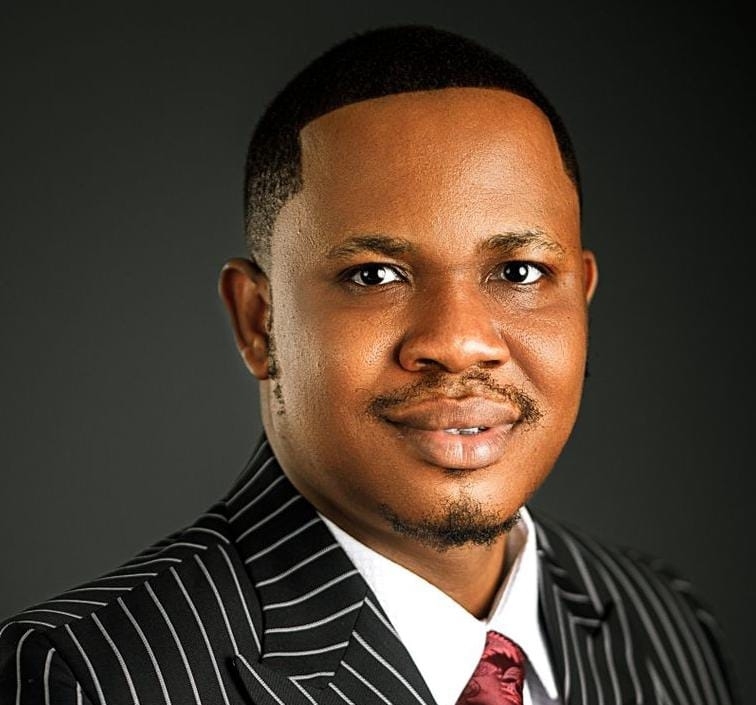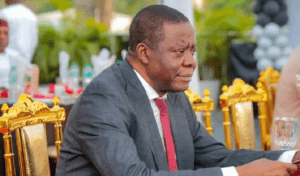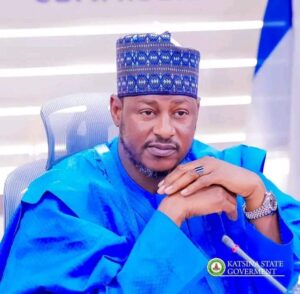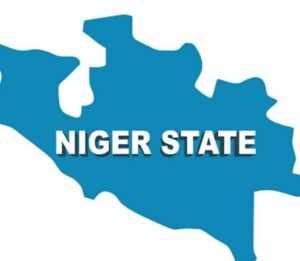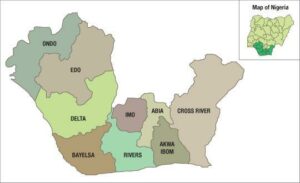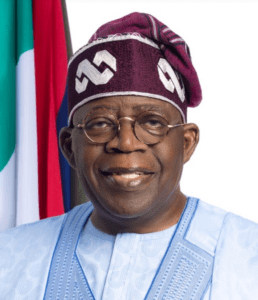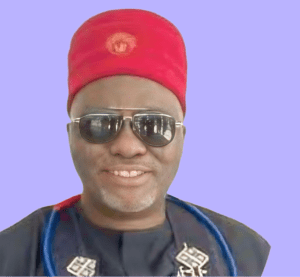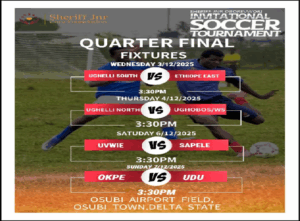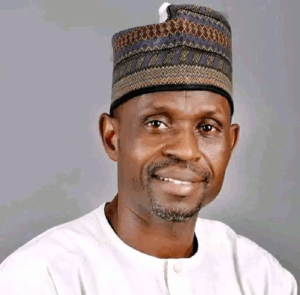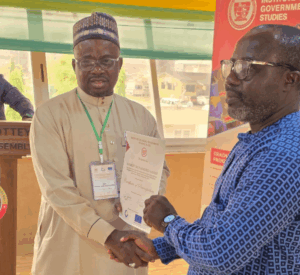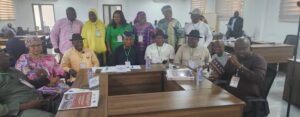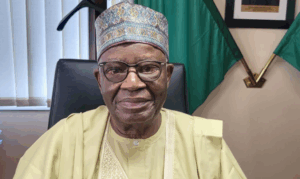From Battlefield to Boardroom: The Visionary Behind Nigeria’s Indigenous Armoured Vehicle Speaks Out
This post has already been read at least 11740 times!
In a nation grappling with security challenges, the story of Major General Victor Ezugwu (retired) stands as a testament to Nigerian ingenuity and resilience. The former Director General of the Defence Industries Corporation (DICON), and the first Nigerian to develop a Mine Resistant Ambush Protected (MRAP) vehicle—aptly named the EZUGWU MRAP—recently sat down with The Punch’s NAOMI CHIMA to offer a rare glimpse into his distinguished military career, the genesis of his groundbreaking invention, and his candid thoughts on national issues.
Contents
A Foundation Forged in Discipline and Innovation
Born in Ohebe, Enugu State, Major General Ezugwu’s journey began on September 27, 1985, when he joined the Nigerian Defence Academy. Commissioned into the Nigerian Army’s Infantry Corps in 1990, his 38-year career was marked by continuous service and a deep commitment to national security.
He attributes much of his foundational discipline to his late father, Patrick Ezugu, a colonial-era mechanic from whom he believes he inherited his technical prowess. His mother, Esther Ezugu, a devout Catholic, instilled in him the spiritual discipline that continues to guide his life, culminating in a papal knighthood from Pope Benedict XVI.
The Birth of a Game-Changing Vehicle: The EZUGWU MRAP
The conception of the EZUGWU MRAP began in 2016 when Ezugwu was appointed Commandant of Depot Nigerian Army, Zaria. Tasked by then-Chief of Army Staff, Lt. Gen. Tukur Buratai (retd.), to reform recruit training using his extensive frontline experience, he challenged the tradesmen under his command to produce patrol vehicles. “We stripped a Volkswagen Golf and rebuilt it into a prototype patrol vehicle,” he recounted. This initial success led to the production of five functional vehicles within six months, profoundly impressing General Buratai.
This achievement propelled Ezugwu into a new role as the pioneer Group Managing Director of a military vehicle production outfit in Kaduna. There, he met Shedrack Agbo, a brilliant automobile engineer. Together, they embarked on the ambitious project of developing the EZUGWU MRAP. The initiative gained further momentum when President Buhari approved its relocation to DICON for production. Ezugwu humbly shared the credit, emphasizing, “I worked with a team of smart, young engineers. I brought them together, mentored them, and led the process.”
Combat-Proven and Cost-Effective
The EZUGWU MRAP has proven its worth in various operational theatres across Nigeria, including Maiduguri, Adamawa, Sokoto, and Enugu. With over 30 units produced and distributed, these vehicles have been instrumental in the fight against insurgents.
What makes the MRAP truly unique is its indigenous origin, marking it as the first armoured vehicle locally produced by the Nigerian military since 1964. Named after the General himself by presidential approval, the vehicle boasts impressive capabilities: it is bulletproof, able to withstand 7.62mm machine gun and AK-47 fire, and mine-resistant with mechanisms to neutralize explosive threats. Its amphibious capabilities allow it to traverse water up to 20–30 meters deep.
Equipped with armoured windshields, advanced communication systems (10–16km range), and surveillance cameras (2–5km range), the EZUGWU MRAP provides crucial operational advantage. Perhaps most significantly, it offers an astounding cost-effectiveness, priced at approximately N250 million per unit, a fraction of the N900 million to N1 billion commanded by similar foreign versions.
Overcoming Hurdles and Championing Local Talent
The journey to producing the EZUGWU MRAP was not without significant challenges. Accessing armoured-grade steel proved to be a major hurdle, necessitating initial imports from China before local alternatives were identified. The dormancy of the Ajaokuta Steel company and the closure of local truck chassis factories like ANAMCO, Leyland, and Steyr also meant reliance on imported components. The COVID-19 pandemic further complicated logistics and foreign exchange.
Despite these obstacles, Ezugwu highlighted a crucial triumph: “All the engineering work was done by Nigerians. No foreigner was involved. Our oldest engineer was just 32 years old. It proved we have the manpower in this country.” The project, which began in 2018, saw a working prototype within seven months and an improved second version commissioned by President Buhari in 2019.
By 2021, the EZUGWU MRAP was globally competitive, a remarkable feat achieved in three to four years, compared to the eight to twelve years typical for similar projects abroad.
A Call for Continuity and Future Enhancements
However, the General expressed concern over the current state of production. “Unfortunately, since I left DICON, production has slowed significantly,” he lamented, attributing it to Nigeria’s pervasive “lack of continuity.” Despite this, he remains hopeful, maintaining communication with the current military leadership for a potential resumption of production.
Looking ahead, Ezugwu envisions future versions of the MRAP adapted for climate resilience, given global warming and Nigeria’s diverse terrain. He also stressed the importance of regularly updating materials, tyre specifications, and armour thickness, akin to practices in advanced nations.
A Career Defined by Courage and Compassion
Major General Ezugwu’s combat experience spans decades and continents. From Sierra Leone in 1991 to Liberia in 1992 (where his soldiers affectionately nicknamed him “Rambo”), and engagements in Bakassi (1993) and Warri (1995), his career was relentlessly battlefront-driven.
He notably led the disarmament of 32 militant camps during the Niger Delta Amnesty Programme and, as a Brigadier General, reclaimed seven local governments from Boko Haram in Adamawa in just three months. Later, as General Officer Commanding in Maiduguri, he brought stability to several areas.
Throughout his perilous career, his faith remained his anchor. “We prayed before battle, after victory, every Sunday, every morning,” he shared, citing this as the reason for his papal knighthood, awarded right in Maiduguri.
Leadership from the Front: Principles of Command
Ezugwu’s leadership philosophy is rooted in selflessness and courage. “Soldiers don’t follow cowards. I always told my men, ‘Follow me,’ and I meant it. I led from the front.” He emphasized the importance of transformational leadership, improving feeding, welfare, and morale by treating his soldiers “like my own children.”
He also highlighted the critical need for wise resource management, often using personal funds to support his troops. “When your soldiers know you care, they’ll risk their lives for you. When they know you don’t, they won’t.
Unpacking the Boko Haram War and Political Interference
Having been at the heart of the fight against Boko Haram, Ezugwu offered a sobering perspective on the conflict, acknowledging its reality and immense challenge.
He stated that the war escalated due to politicization, noting that such insurgencies were uncommon before the democratic era, when crises were handled more decisively. He believes the group’s splintering into multiple factions further complicates matters.
The General advocates for a more defensive and technologically driven strategy, emphasizing precision and intelligence through drones and advanced tech.
He boldly claimed that with sufficient resources and mandate, he could end the war swiftly, but lamented that “some people benefit from the crisis, especially during elections,” due to the political convenience of fewer votes cast in conflict zones.
Family as a Pillar of Support and a Life of Tranquility
Throughout his dangerous assignments, Ezugwu’s family, especially his wife, proved to be an unwavering source of support. He recounted how his wife would visit him in Yola, and even stayed with him in Maiduguri despite warnings. “She told them, ‘For better or worse. If they kill me, so be it. I won’t leave him.'”
Married in December 1994, they have three children, two sons studying abroad, and a daughter in Nigeria. Now retired, he cherishes the peace of home, a “calm after the storm.”
His daily routine, whether in active service or retirement, begins with morning devotion or Mass. While in the Army, he was a field officer, always preferring to be with his soldiers. Now, his “office is at home,” filled with family time, golf (three times a week for mental clarity and fitness), and a passion for helping others. He continues to mentor young officers and deliver lectures, seeing it as a way of giving back.
A Legacy of Service, Faith, and Community Impact
Major General Ezugwu’s aspirations for his legacy are deeply rooted in his identity. He desires to be remembered as the general who didn’t forget his roots, a son who made his people proud through contributions to his community, including roads, solar lights, and a civic center.
His devout Catholicism is also central to his legacy, marked by the completion of his village church and his Papal Knighthood. Within the Nigerian Army, he hopes to be remembered as one of its most decorated generals, someone who gave his all. Above all, he wishes for his late parents to know their son made them proud.
A Frank Assessment of Nigerian Governance and Electoral Integrity
The retired General did not mince words when discussing the state of Nigerian governance and politics. He cautioned leaders against mistaking citizens’ silence for weakness, urging them to govern with the fear of God. He decried the opulence of leaders in a rich nation where poverty remains rampant, condemning the waste of resources and the high cost of governance. He called for “true dividends of democracy” for Nigerians.
Addressing the pervasive issue of electoral integrity, Ezugwu demanded that “our votes count,” and that “all forms of manipulation” cease. “Every election result seems blurry or tampered with. It must stop. Let people’s choices prevail.” He emphasized the importance of allowing the people to decide their leaders, warning against the “betrayal of trust” when voters are shortchanged.
Advice to Nigerians and Future Endeavors
His advice to Nigerians is direct and empowering: “Stand up for your rights. Let your voices be heard. Don’t just pray; act. Prayer without action is empty.” He believes in divine intervention but stresses the necessity of human action.
As for his own future, while his community desires his entry into politics, he remains undecided. “I don’t like the way politics is played in Nigeria, and I don’t belong to any party. But, I am watching.” He awaits divine direction, focusing for now on his tranquil retired life, enjoying his favorite pounded yam and bitterleaf soup, and continuing to contribute to society through mentorship and community engagement.
This post has already been read at least 11740 times!

